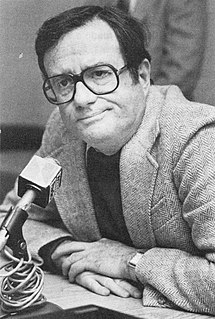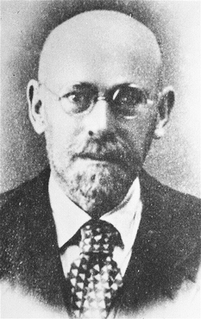A Quote by Rudolf Steiner
When what we introduce into the children's world of ideas and feelings is in line with the direction of the developmental forces of a given stage of life, we strengthen the entire developing person in a way that remains a source of strength throughout that person's life.
Related Quotes
Financial literacy is not an end in itself, but a step-by-step process. It begins in childhood and continues throughout a person's life all the way to retirement. Instilling the financial-literacy message in children is especially important, because they will carry it for the rest of their lives. The results of the survey are very encouraging, and we want to do our part to make sure all children develop and strengthen their financial-literacy skills.
I had to change. I had to change was the thought that drove me in those months of planning. Not into a different person, but back to the person I used to be—strong and responsible, clear-eyed and driven, ethical and good. And the PCT would make me that way. There, I’d walk and think about my entire life. I’d find my strength again, far from everything that had made my life ridiculous.
Some friendships in life sustain themselves only at a particular life stage, products of some mutual developmental problem to be resolved together, or of some external circumstance, like being housed in the same dormitory in boarding school. Others grow out of a deeper spiritual and philosophical affinity, which continues throughout life.
When I allow myself to feel all my feelings instead of numbing myself to them, they pass more quickly. I spent my entire life telling everyone I was "OK, damn it." But when you surrender to the [uncomfortable] feelings, there are gifts on the other side: Allowing yourself to feel loneliness forces you to reach out. Letting yourself get angry gives you strength, energy and motivation.
Never lose yourself on the stage. Always act in your own person, as an artist. The moment you lose yourself on the stage marks the departure from truly living your part and the beginning of exaggerated false acting. Therefore, no matter how much you act, how many parts you take, you should never allow yourself any exception to the rule of using your own feelings. To break that rule is the equivalent of killing the person you are portraying, because you deprive him of a palpitating, living, human soul, which is the real source of life for a part.
I was in correspondence with an anonymous source for about five months and in the process of developing a dialogue you build ideas, of course, about who that person might be. My idea was that he was in his late forties, early fifties. I figured he must be Internet generation because he was super tech-savvy, but I thought that, given the level of access and information he was able to discuss, he had to be older.
Given the reality of unintended parenthood and parental unhappiness, one would think that women and men who make the decision not to have children - who are deliberate and thoughtful about the choice to bring another person into the world - would be seen as less selfish than those who unthinkingly have children. Yet the stigma remains.
What I have learned from the teachers with whom I have worked is that, just as there is no simple solution to the arms race, there is no simple answer to how to work with children in the classroom. It is a matter of being present as a whole person, with your own thoughts and feelings, and of accepting children as whole people, with their own thoughts and feelings. It's a matter of working very hard to find out what those thoughts and feelings are, as a starting point for developing a view of a world in which people are as much concerned about other people security as they are about their own









































